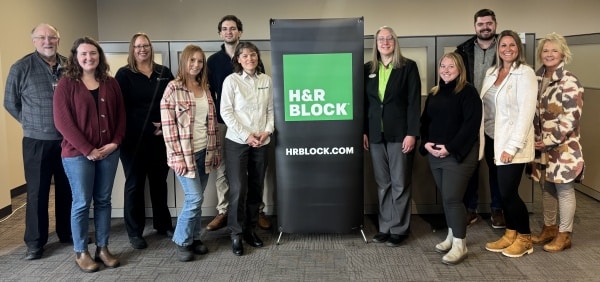The 2020 legislative session is underway in St. Paul, and Senator Mark Johnson said the first couple of weeks have been pretty eventful with more than 4,000 bills proposed to the Senate. “Right now, it’s early in the session, so there are so many proposals,” said Johnson. “We have about 4,000-5,000 bills floating around the Senate right now, so to keep a handle on everything is quite a feat. We focus mostly on the lanes we’ve been assigned to. I’m on the agriculture committees, judiciary committee, and environment, so those are more the realm that I see, but it’s quite an eventful year so far.”
On the ag committee, Johnson said a common topic is providing tax relief through farmers by changing the depreciation for ag equipment. “We’ve been doing a lot of hearings on the ag committee,” said Johnson. “A couple of things keep popping up pretty repetitively both in committee and outside in the halls. One, try to get some tax relief for farmers in form 179, that’s to be able to depreciate your equipment quicker. That seems to be a big snag for a number of farmers trying to do some trade-in on equipment, which wasn’t a problem before. But with the big change in the federal regulations, Minnesota didn’t keep up, and now we’ve got to figure out how to take care of that. There is also a low-interest loan program title RFA. It’s usually younger farmers who are accessing those loans, and those funds have been depleted. We put in about $35 million a year in the last couple of years, and those have been depleted. Those loans match local banks in an effort to take some risk off our banks but still make sure we can get funding for farmers.”
Johnson says another concern is flooding this spring and creating a disaster contingency fund for the state. “We’re also looking a disaster assistance funds,” said Johnson. “One in the form of training, being able to give counties an additional $30,000 training fund. We’re pretty concerned about this year’s flooding. Crookston, in the past, has dodged a bullet, but we know the effort that went into Crookston before my time in the Senate. It’s a big deal to be prepared and have the funds available in case something happens. There is also a disaster contingency account. That we’re looking at about $30 million so that there are funds available to communities if disaster strikes, then we don’t have to go back into session.”
Minnesota’s surplus and a bonding bill are also being addressed in Senate committees said, Johnson. “We’re looking a bonding bill, a tax bill – how do we address that $1.5 billion surplus we have,” said Johnson. “My feeling is we have our reserves full. There are already $2.8 billion in reserves, so what do we do with those funds? The Democrats are looking at those and salivating right now, with what new programs can we create, how can we spend that money. What we’re trying to figure out in the Senate is how do we get that money back responsibly or invest it into the state in a way that it will come back to individuals, businesses, farms. That’s not our money. That’s money that is coming from hardworking folks, and I don’t think we have a right to hold onto that. We have to figure out a way to make sure our families can use it the way they see fit.”
Johnson said one way the Senate is looking at addressing the surplus is removing the tax on social security. “One way that seems to have legs is social security retirement,” said Johnson. “We get taxed on our social security income, and we’re one of the few states that does that. To me, you’ve worked your whole life, put money to that, and then see it taxed when it’s coming back in—what a kick in the pants when you start seeing your income taken down again by the state. We’re looking at ways to adjust that. That’s a large bill. The state looks at that as a cost of a $440 million note. We’re trying to find ways to work around that.”
The current legislative session is set to end on May 18.
Tags:



